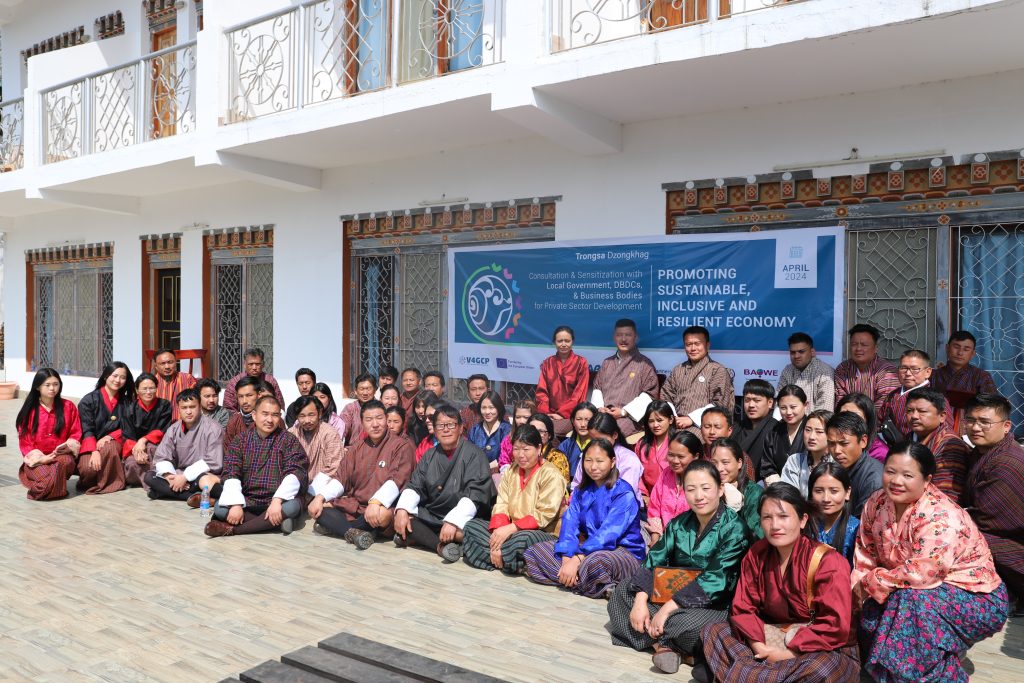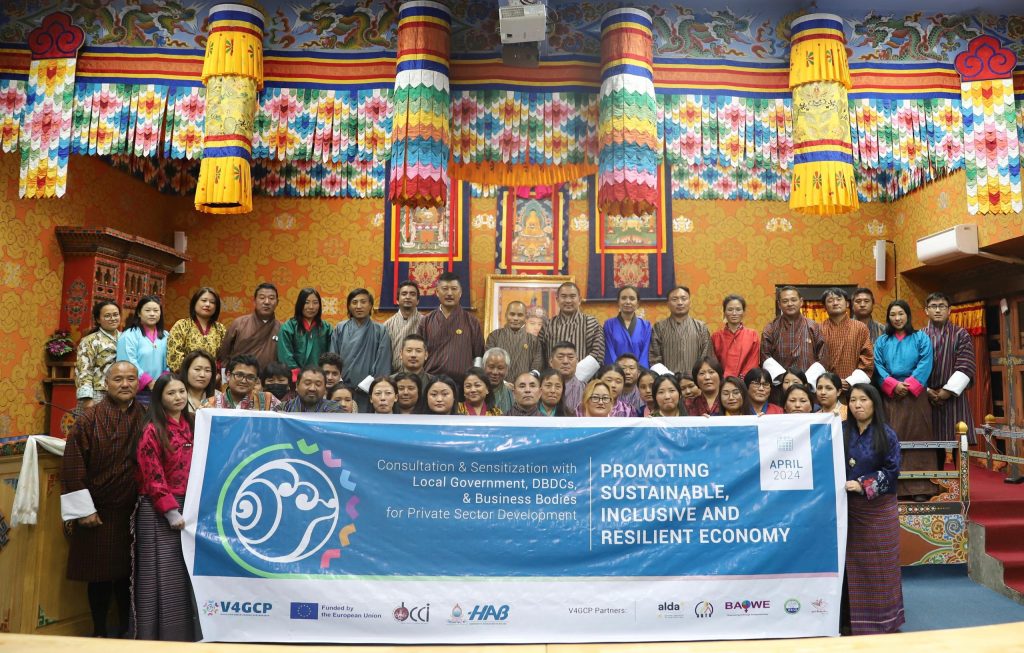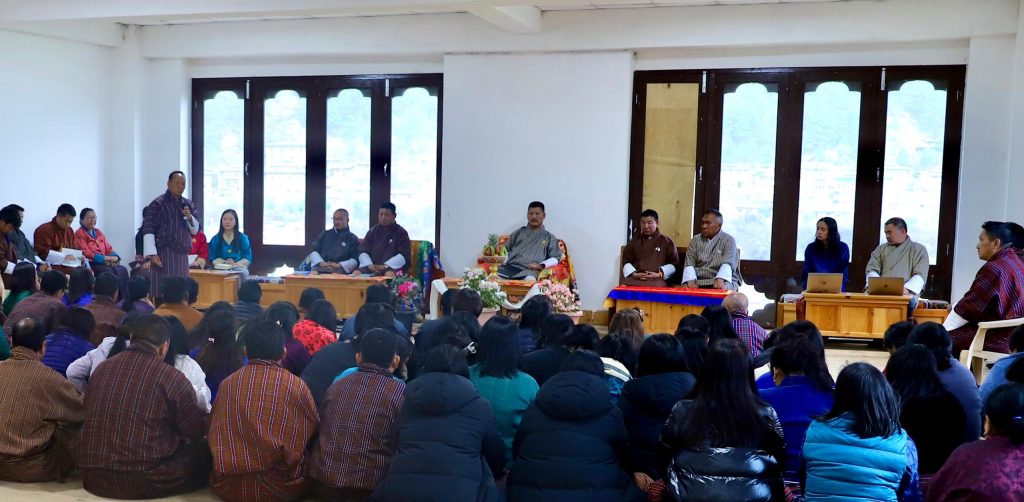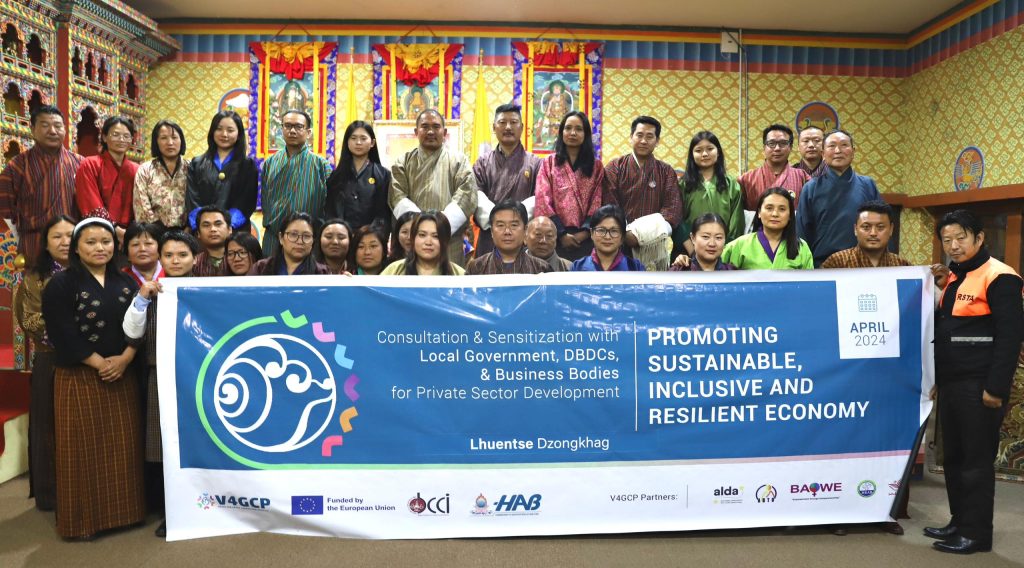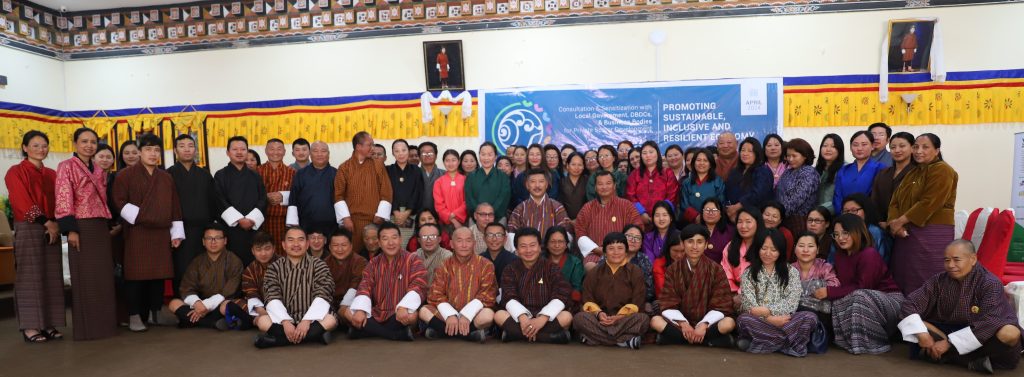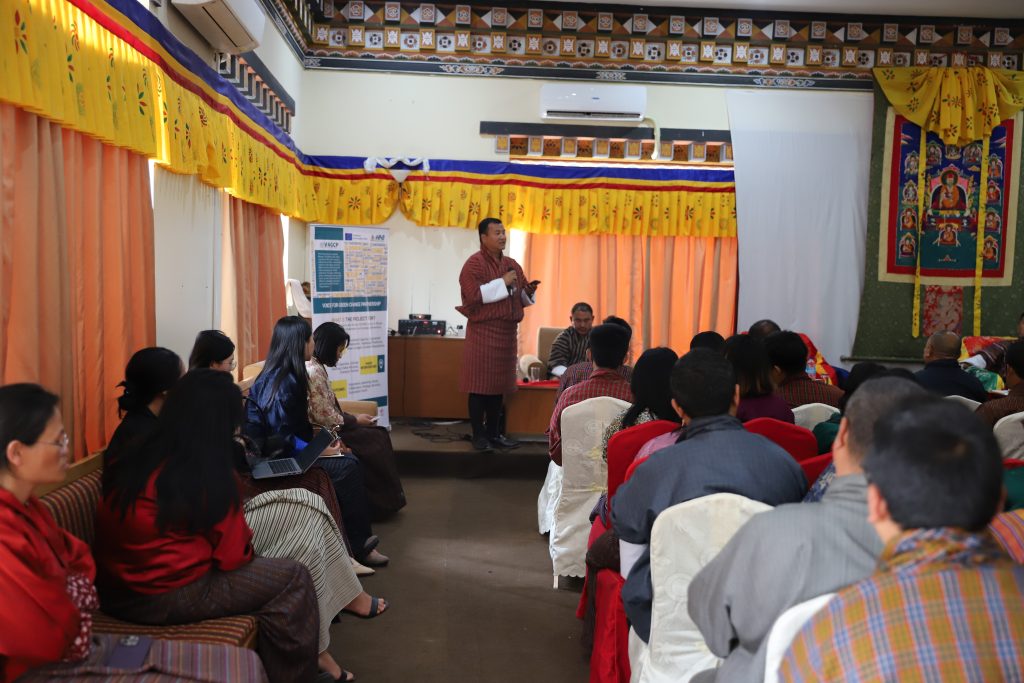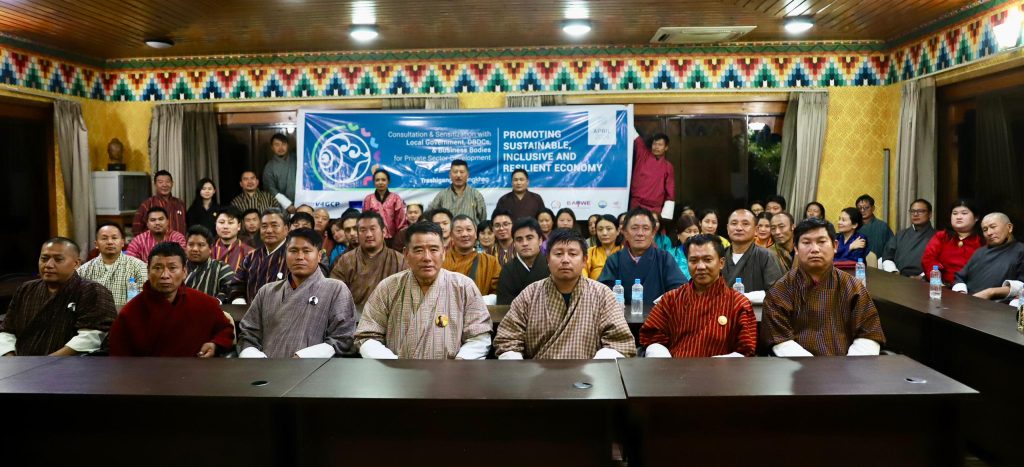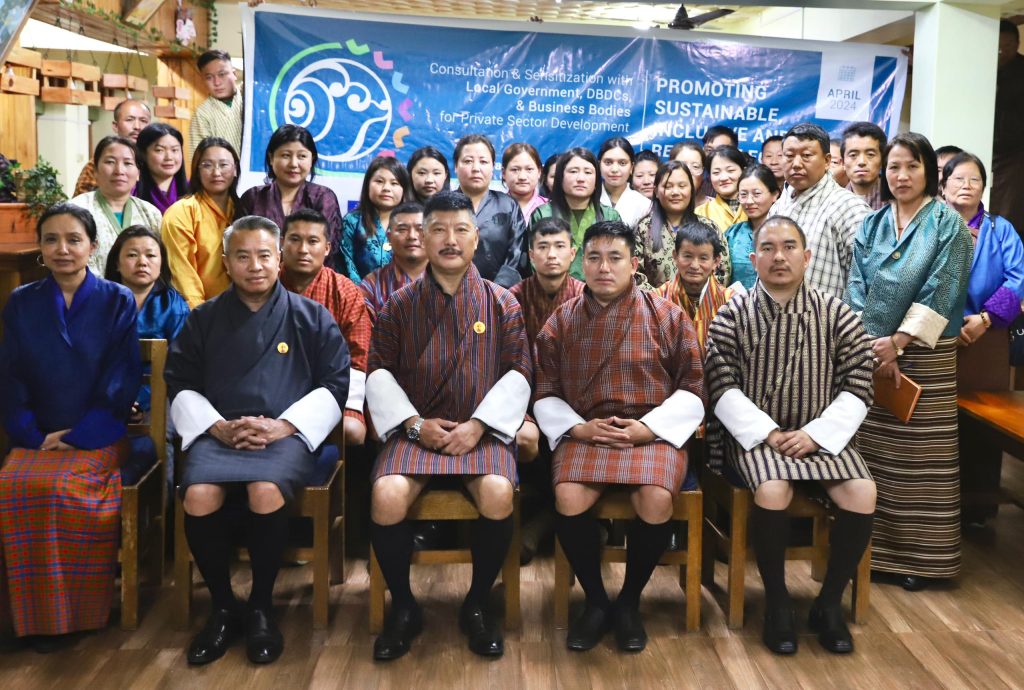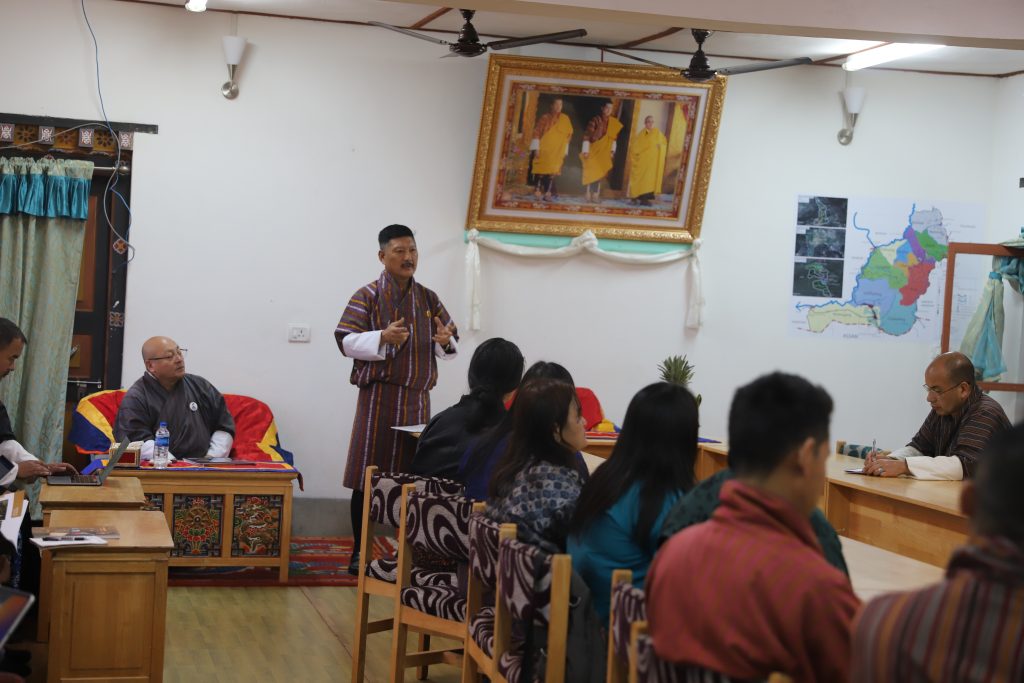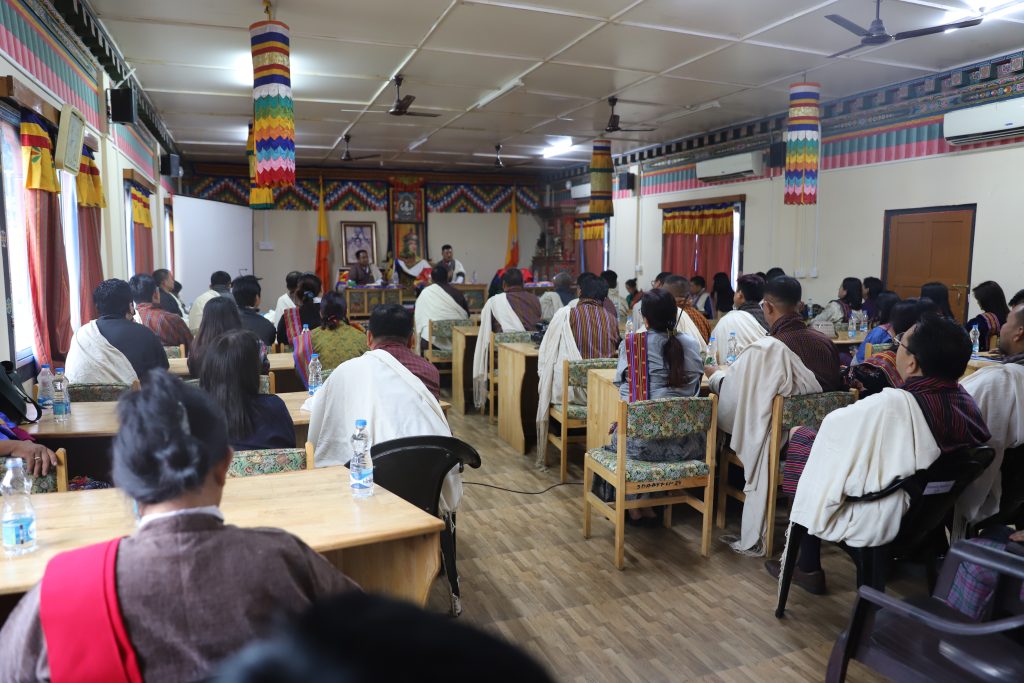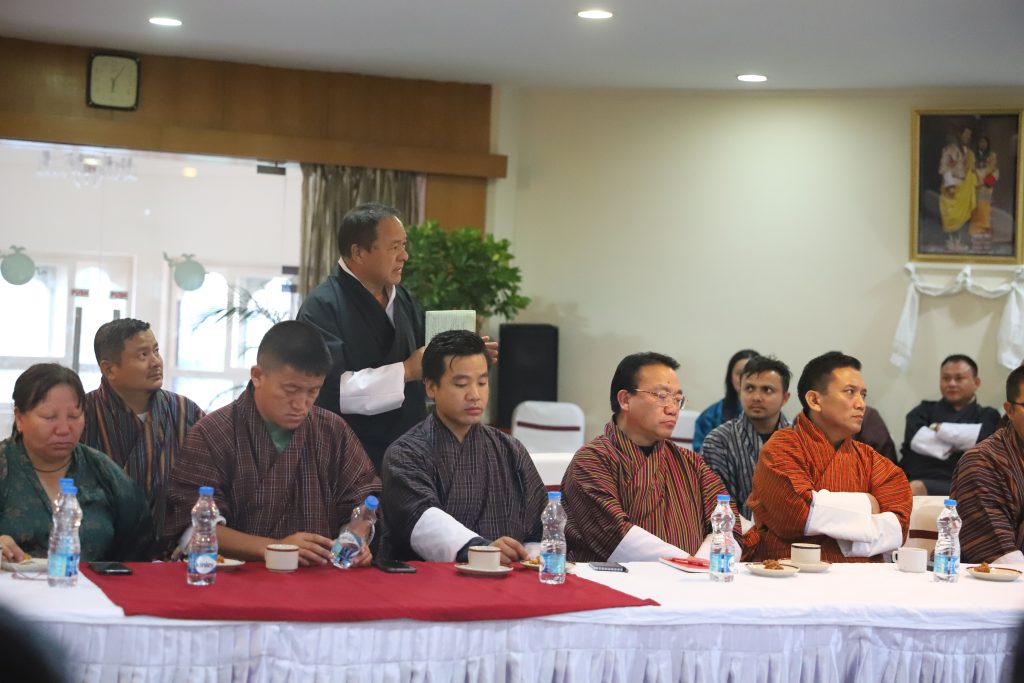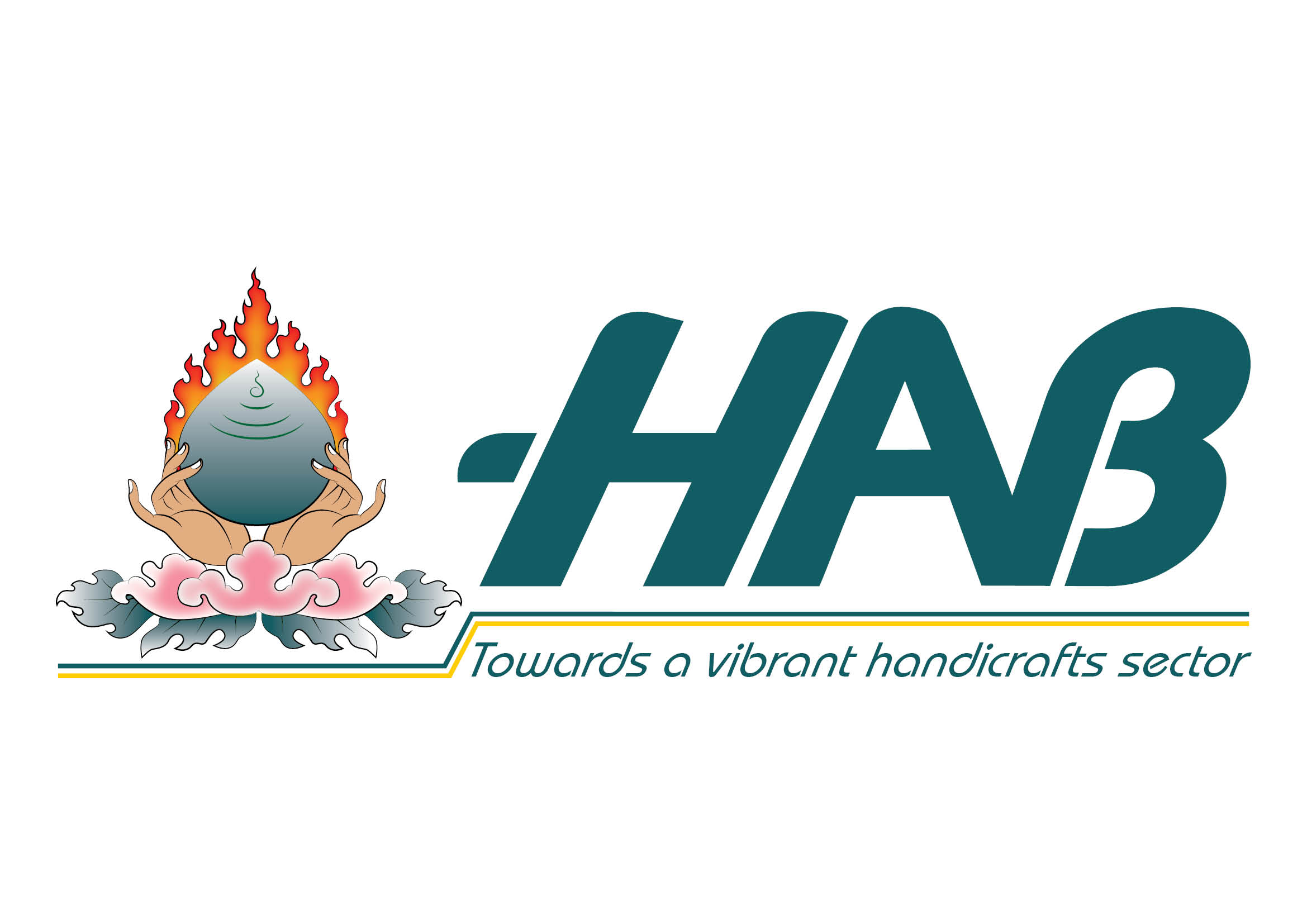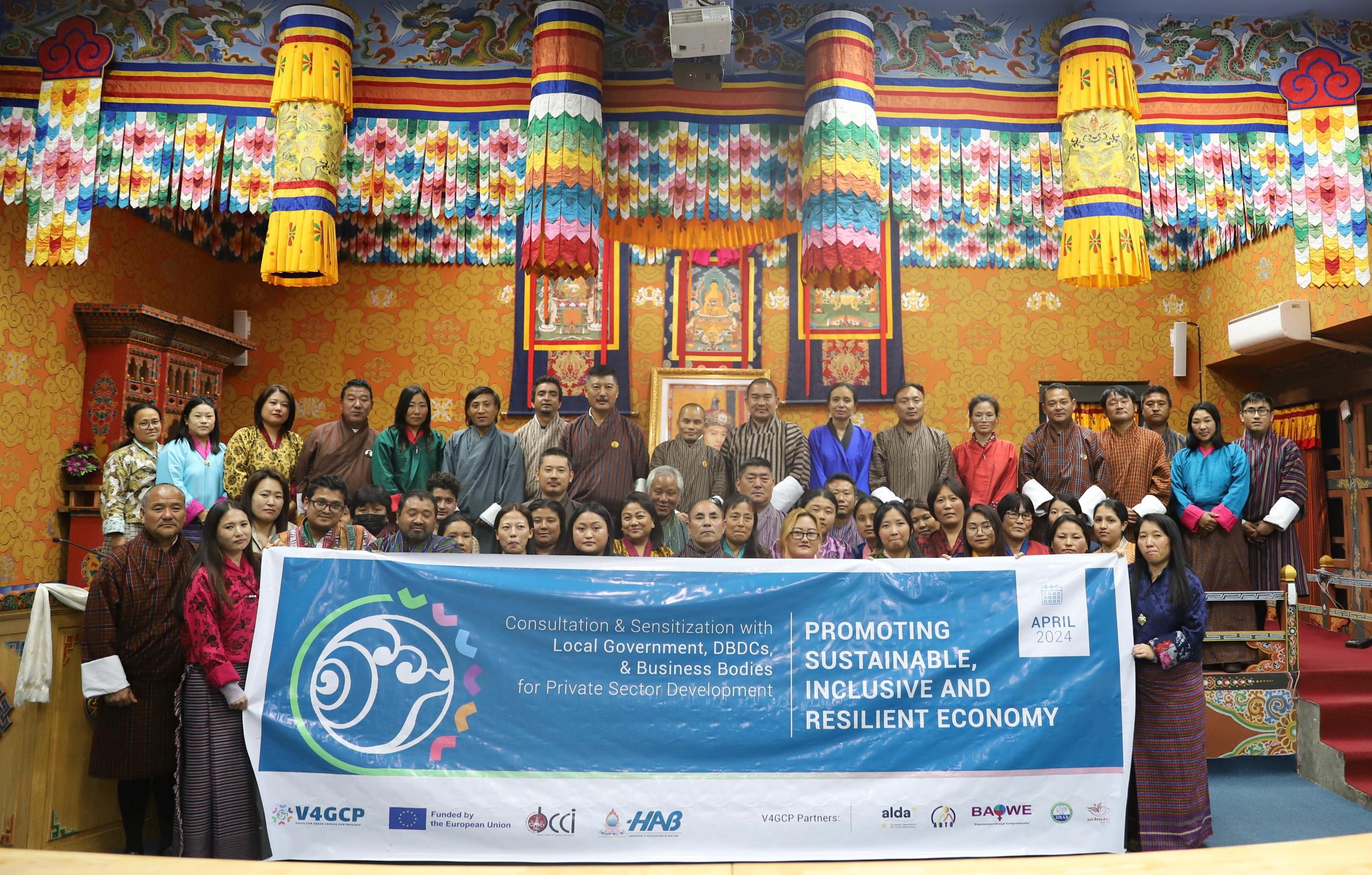THIMPHU, April 15, 2024
Businesses across Dzongkhags in central and eastern Bhutan are grappling with location-specific challenges that hinder their growth and long-term viability. These concerns were brought to light during a series of consultative and awareness sessions convened by the Bhutan Chamber of Commerce and Industry (BCCI) and the Voice for Green Change Partnership (V4GCP) Project, supported by the European Union and led by the Handicrafts Association of Bhutan (HAB). The aim of these sessions was to foster a sustainable, inclusive, and resilient economy.
The dearth of viable markets in central and eastern Bhutan has significantly hampered business prospects, with limited consumer bases making it difficult for enterprises to thrive. Recognizing the urgency of the situation, businesses in these regions are calling for substantial policy reforms.
One proposed measure involves a proactive promotion of tourism in central and eastern Bhutan. Immediate interventions include facilitating tourist entry and exit through Samdrup Jongkhar and Nganglam, as well as enabling local airlines to establish direct flights between these regions and key international hubs.
Business stakeholders believe that such policy adjustments will naturally attract investments in tourism infrastructure and enhance business services. While policymakers often cite the lack of amenities as a barrier to tourism development, it is increasingly evident that inadequate policies are equally culpable for the region’s underperformance in this sector.
Moreover, any shift in tourism policies must be complemented by efforts from Dzongkhag administrations to develop enticing tourism packages. BCCI and V4GCP recognize the immense potential of central and eastern Bhutan to offer unique and captivating tourism experiences. However, the key lies in fostering participatory and inclusive decision-making processes that engage both industry experts and local communities in product development. Addressing the current policy gaps requires aligning government interventions with the genuine needs of local stakeholders.
The repercussions of insufficient development policies extend beyond tourism, manifesting in significant challenges such as rural-urban migration, land degradation, and labor shortages. In particular, thromde policies have impacted business investments due to inadequate land allocation and short lease periods. It is imperative for the government to review these policies to align them with the macroeconomic aspirations outlined by the private sector.
Another concern raised by businesses pertains to the selection of Thromde Thuemi, mandated by existing laws. Currently, Thromde Thuemi are elected by business communities without requisite business experience, leading to bureaucratic inefficiencies and disconnects with business needs.
In addition to policy reforms, businesses emphasize the need for improved access to finance, citing challenges in securing loans. Initiatives such as the group scheme loan facilitated by BCCI provide a promising avenue for businesses to access funding without the burden of mortgages. The loan is given by BDBL bank.
Furthermore, businesses express apprehensions regarding the operations of state-owned enterprises (SOEs), which they perceive as detrimental to local businesses’ interests. For instance, the retail operations of the Food Corporation of Bhutan (FCB) directly compete with small retailers, undermining their viability. The businesses feel that FCB must operate as a wholesaler to benefit the small retailers. Likewise, the State Mining Corporation Limited (SMCL), imports machine and vehicle spare parts, lubricants, stationeries, etc., which are available in local markets. Businesses advocate for a reevaluation of SOEs’ social mandates to ensure alignment with local business interests.
Border town businesses highlight the prevalence of fronting and preference of Bhutanese customers to shop across the border, attributing it to ineffective policies. Addressing these issues requires proactive measures from the government to curb illicit practices and bolster local economies.
Industries, particularly in industrial areas, identify power supply as a critical challenge, impacting their competitiveness and growth. Despite Bhutan’s advantage in hydropower, inconsistent supply hampers industrial operations. Businesses propose investing in small hydropower and renewable energy plants near industrial clusters to ensure reliable power supply, thereby sustaining domestic industries.
Exporters call for streamlined export routes to Bangladesh, citing tariff and non-tariff barriers that hinder trade. Enhancing trade facilitation measures will unlock the full potential of Bhutan’s export sector and foster economic growth.
Amidst these challenges, businesses in central and eastern Bhutan continue to grapple with the aftermath of the COVID-19 pandemic. They urge the government to consider deferring loan repayments for an additional 3-5 years to alleviate financial burdens.
The comprehensive list of issues raised by businesses, including those in Phuentsholing, will be formally submitted to the Prime Minister by BCCI and V4GCP.
The consultative meetings between business communities and Dzongkhag administrations were conducted from April 1-10, 2024. The participating Dzongkhags included Trongsa, Zhemgang, Bumthang, Lhuentse, Mongar, Trashiyangtse, Trashigang, Pema Gatshel, Samdrup Jongkhar, and Phuentsholing (under Chukha).
